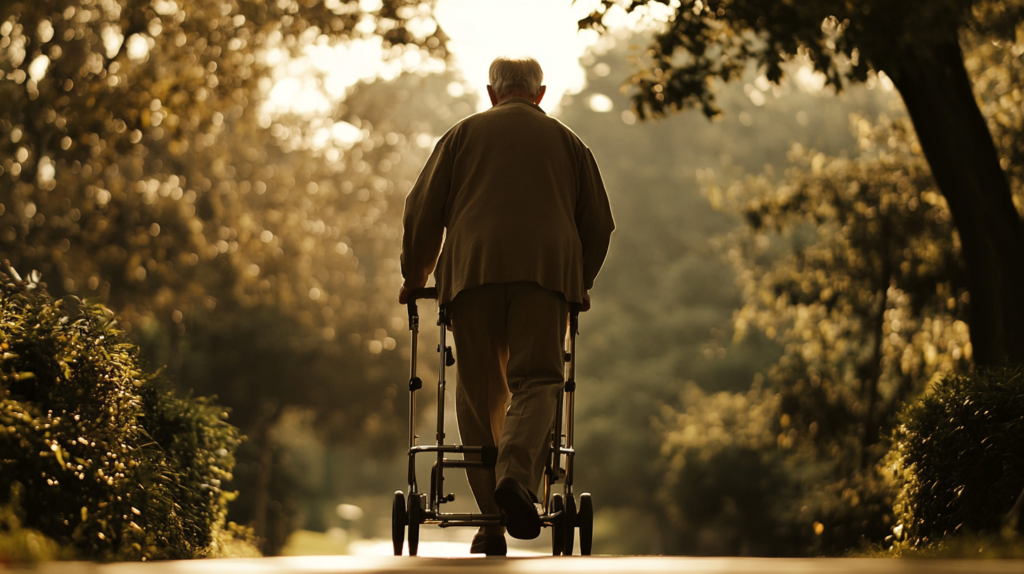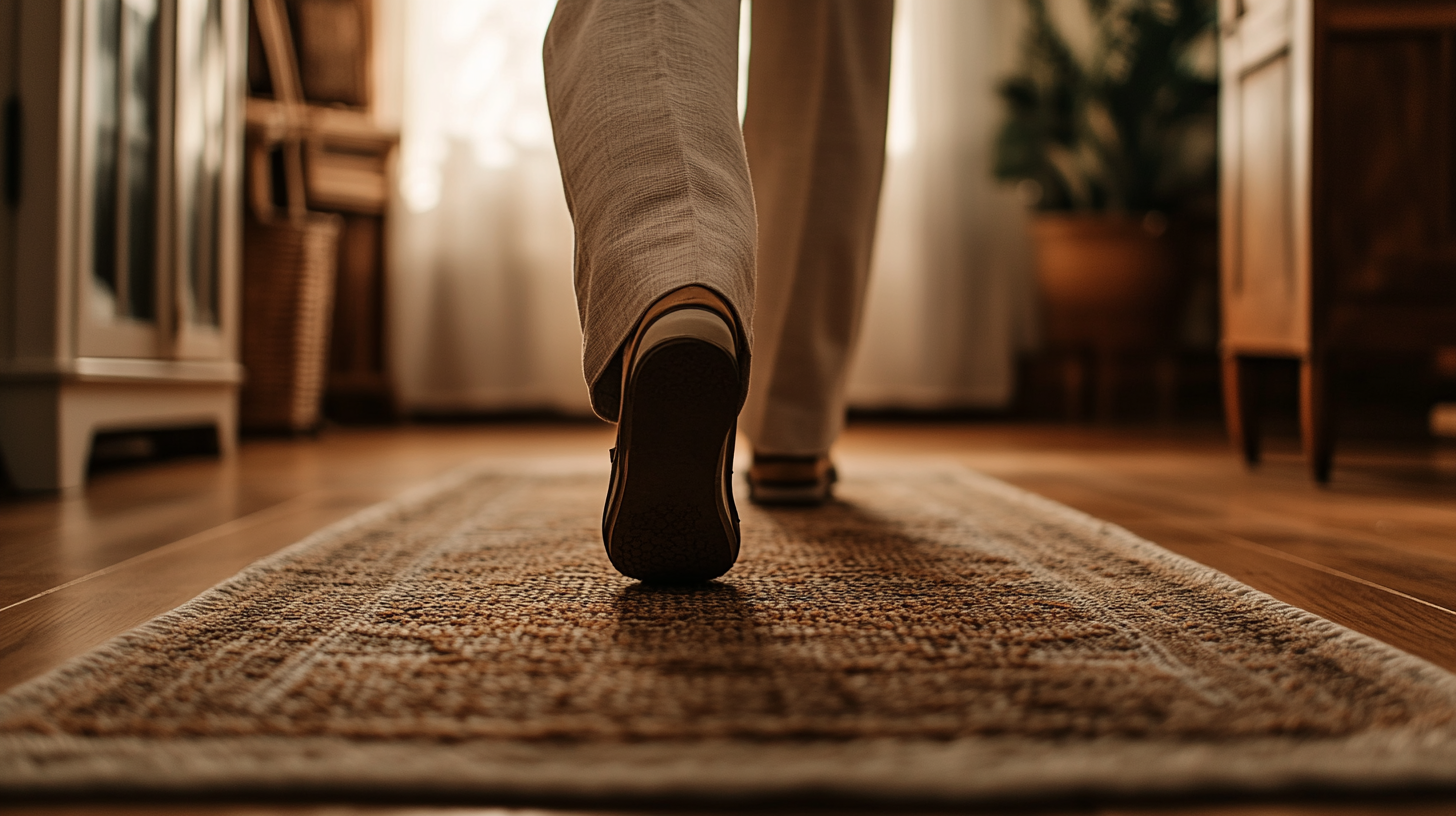
Aging is a journey—a complex, beautiful, and sometimes challenging transition that affects both the body and mind. Too often, when we talk about senior care, the focus tilts heavily toward physical health: medications, mobility, nutrition, and chronic disease management. While these aspects are undeniably crucial, what about the emotional well-being of our elders? What about their loneliness, sense of purpose, and need for human connection?
The reality is that elderly care isn’t just about keeping our loved ones physically healthy; it’s about nurturing their emotional, mental, and social well-being, too. True holistic care doesn’t separate the mind from the body—it recognizes that emotional health and physical health are deeply intertwined.
So, how do we care for our aging loved ones in a way that honors the full spectrum of their needs? Let’s dive in.
The Overlooked Emotional Crisis in Elderly Care
Imagine this: You visit your elderly father, who has been living alone for a few years. He has everything he needs—his medications are organized, his meals are delivered, and his home is safe and accessible. Yet, when you sit down to chat, you notice something troubling. He doesn’t have the same spark in his eyes. His stories are repetitive. He seems disinterested in things he used to love.
He’s physically stable but emotionally fading.
This scenario is more common than we’d like to admit. Studies show that loneliness and social isolation can be as harmful as smoking 15 cigarettes a day. The risks include depression, anxiety, cognitive decline, and even increased mortality rates. And yet, emotional care is often treated as secondary, if addressed at all.
The Mind-Body Connection in Aging
Physical and emotional health are in constant conversation with each other. When one suffers, the other follows.
Take, for example, chronic pain—a common struggle among seniors. Pain isn’t just a physical sensation; it affects mood, energy levels, and even the desire to engage with others. Similarly, depression and anxiety can manifest as fatigue, loss of appetite, or even physical pain, making it harder for seniors to stay active and healthy.
Holistic elderly care recognizes that a person isn’t just a collection of medical conditions but a whole being with emotional needs that shape their physical well-being.
Empowering Independence: Helping Seniors Stay Active and Engaged
Maintaining an active and engaged lifestyle is crucial for seniors to preserve their independence and overall well-being. This article explores practical advice on safe exercises, engaging hobbies, and valuable community resources that can help older adults thrive in their golden years.
If we want to ensure our aging loved ones not only survive but thrive, we must prioritize care that supports both their emotional and physical health. Here’s how:
1. Personalized Physical Care Beyond the Basics
We all know the fundamentals—medications, regular check-ups, and a safe home environment. But true holistic care goes beyond the basics:
- Adaptive Exercise Programs: Gentle yoga, water aerobics, and even dancing can enhance mobility and mood.
- Walking: One of the most accessible forms of exercise, walking strengthens muscles, improves cardiovascular health, and reduces the risk of various diseases. Start with short walks and gradually increase distance and pace.
- Tai Chi: This traditional Chinese practice combines gentle movements with mindfulness, enhancing balance, flexibility, and mental well-being
- Cycling: Whether on a stationary bike or outdoors, cycling offers a low-impact cardiovascular workout that improves strength and balance
- Nutritional Support: A diet rich in omega-3s, antioxidants, and hydration improves both brain and body function.
- Puzzles and Brain Games: Activities like crosswords, Sudoku, and jigsaw puzzles help maintain cognitive function
- Live-in Care Options: Seniors who receive personalized live-in care tend to fare better emotionally and physically.
By ensuring that physical care is personalized and engaging, seniors are more likely to stay active, independent, and mentally sharp.
2. Emotional and Social Support: The Missing Piece
One of the biggest gaps in elderly care is the lack of emotional support. The loss of independence, the passing of friends, and even daily solitude can take a heavy emotional toll. Here’s how we can address this:
- Companionship Care: Live-in caregivers or home aides can provide more than just physical assistance—they can offer genuine companionship.
- Engaging Activities: Book clubs, music therapy, art classes, and group outings foster social connections and mental stimulation.
- Therapeutic Practices: Meditation, pet therapy, and even storytelling can provide emotional relief and a sense of purpose.
- Regular Family Involvement: Even with professional caregivers, family visits and phone calls remain critical.
The truth is, no amount of medication can replace the healing power of human connection.
Special Considerations for Common Elderly Health Challenges

1. Dementia and Alzheimer’s: Beyond Just Memory Loss
Memory-related conditions don’t just affect cognition; they can be emotionally distressing for both the patient and their caregivers. Specialized care should include:
- Consistent routines to reduce confusion and anxiety.
- Sensory therapy (music, scents, and familiar textures) to trigger positive memories.
- Personalized interaction that treats the individual with dignity and respect.
2. Stroke Recovery: A Physical and Emotional Battle
Recovering from a stroke is about more than regaining movement—it’s about rebuilding confidence and motivation. Post-stroke care should include:
- Live-in rehabilitation support for safety and assistance.
- Emotional coaching to combat frustration and depression.
- Cognitive exercises to strengthen brain function.
3. Seniors with Terminal Illness: Preserving Dignity and Comfort
End-of-life care should focus on comfort, peace, and emotional support. Hospice and palliative care should be as much about emotional presence as it is about medical assistance.
The Role of Technology in Holistic Elderly Care
With advancements in healthcare, technology is transforming elderly care, making it easier to provide both physical and emotional support:
- Telehealth Services: Virtual doctor visits reduce stress and increase accessibility to care.
- AI Companionship: Smart devices can provide reminders, play music, and even engage in conversation.
- Wearable Health Trackers: Devices that monitor heart rate, movement, and sleep patterns help caregivers respond proactively.
When used correctly, technology doesn’t replace human connection—it enhances it.
Final Thoughts: A Call for Change in Elderly Care
Elderly care must evolve from a task-based approach to a heart-centered one. We must stop viewing aging as a problem to be managed and start treating it as a life stage that deserves joy, dignity, and fulfillment.
As we care for the elderly in our lives—whether they’re our parents, grandparents, or even ourselves in the future—let’s commit to a holistic approach. Let’s ensure that no senior is just “getting by.” Instead, let’s create care environments where they feel valued, seen, and truly cared for.
Because at the end of the day, what we all need—young or old—is to feel loved.
Share This Message
If this resonated with you, share it with others who are caring for aging loved ones. Together, we can redefine elderly care for the better.
Would you like a tailored approach to holistic senior care? Contact Etos Health for a personalized care consultation today.


